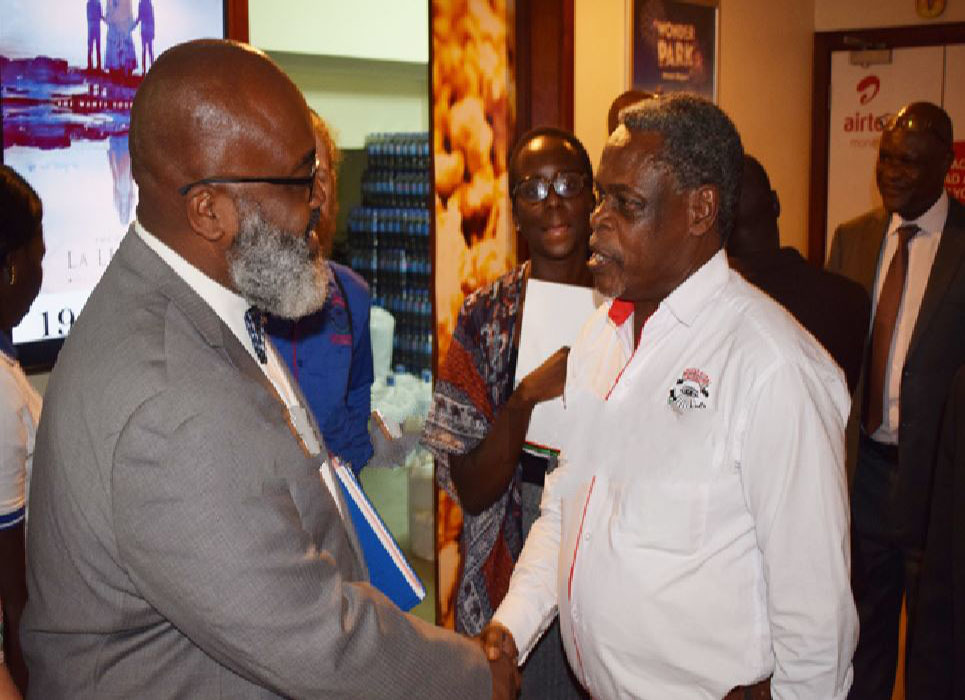Government of Uganda asked to adopt creative processes in planning as opposed to the traditional problem-solving approach.
James Ham, the country director of Peace Corps Uganda said it’s very important for the country to shift from the usual problem-based planning and use the creative and visionary approach if it is to realize its planned goal of attaining middle-income status.
The country needs to have a paradigm shift in planning from the usual problem-based approach to more specific and self-oriented planning said Ham. Governments need to borrow a leaf from the private sector especially non-governmental organisations which emphasize a results-based approach to development.
Ham was speaking at the premiering of a developmental film entitled “The Uganda project” at Century Cinemax, Acacia Mall in Kampala on 28th March 2019. The film shows how rural development has been made possible in the mid-western districts of Kagadi, Kibaale, and Kakumiro by a local Non-Governmental organization, Uganda Rural Development, and Training program(URDT). It shows how less privileged children and families have been enabled to create transformation they desire themselves through the visioning process and target setting. The film shot by Robert Fritz and Reint Bakema, clearly shows how rural development has been realized by the use of local resources with minimal intervention such as awakening the sleeping genius in each human being. The intervention looks at the two-generation approach where parents and their children are oriented on how to create wealth for themselves using the available resources in the community. Dr. Godfrey Okot from National Planning Authority described the film as a real-life situation reflection which will lead to self-discovering of whoever will watch it through the visionary approach.
The two-generation approach ensures that the youth are involved in the development process instead of mere rhetoric of youth are the leaders of tomorrow. The approach to development ensures that youths are prepared for the future and are actively participating in the development process which is an assurance of continuity. This is a serious challenge to the planning authority and pledged to integrate such an approach while developing plans for the country. said Okot.
Okot added that at often times the youth or children are left out in the planning and implementation process yet we claim that they are leaders of tomorrow. Dr. Joy Kwesiga, the vice chancellor of Kabale University said the film puts development into the real situation for Uganda which must be spread to other parts of the country and can be used as a case study for development training in higher institutions of learning. “This approach help to contextualize what is taught in class and also show that it is possible for the community to develop themselves with little or no external assistance,” said Kwesiga. Noeline Basemera Kisembo, the Kibaale district woman Member of Parliament said that the mindset is possible to change with a clear vision considering the current reality and the desired aspirations. “When the mindset of our people is changed, development is possible and at a lesser cost,” said Basemera. Nathan Kyamanywa, the Rt. Bishop of Bunyoro Kitara diocese said that holistic transformation is indeed a requirement for the development of our country Uganda and Africa in general. “All development architects must ensure that they employ the holistic approach to development because it tackles both the spiritual and material aspects of life,” said Kyamanywa. Dr. Mwalimu Musheshe the executive director URDT and vice chancellor African Rural University based in Kagadi said the film will be shown in most parts of the country to explain that rural development is possible with the little available resources. SOURCE: https://www.newvision.co.ug/new_vision/news/1497392/uganda-adapt-creative-process-planning

